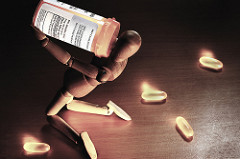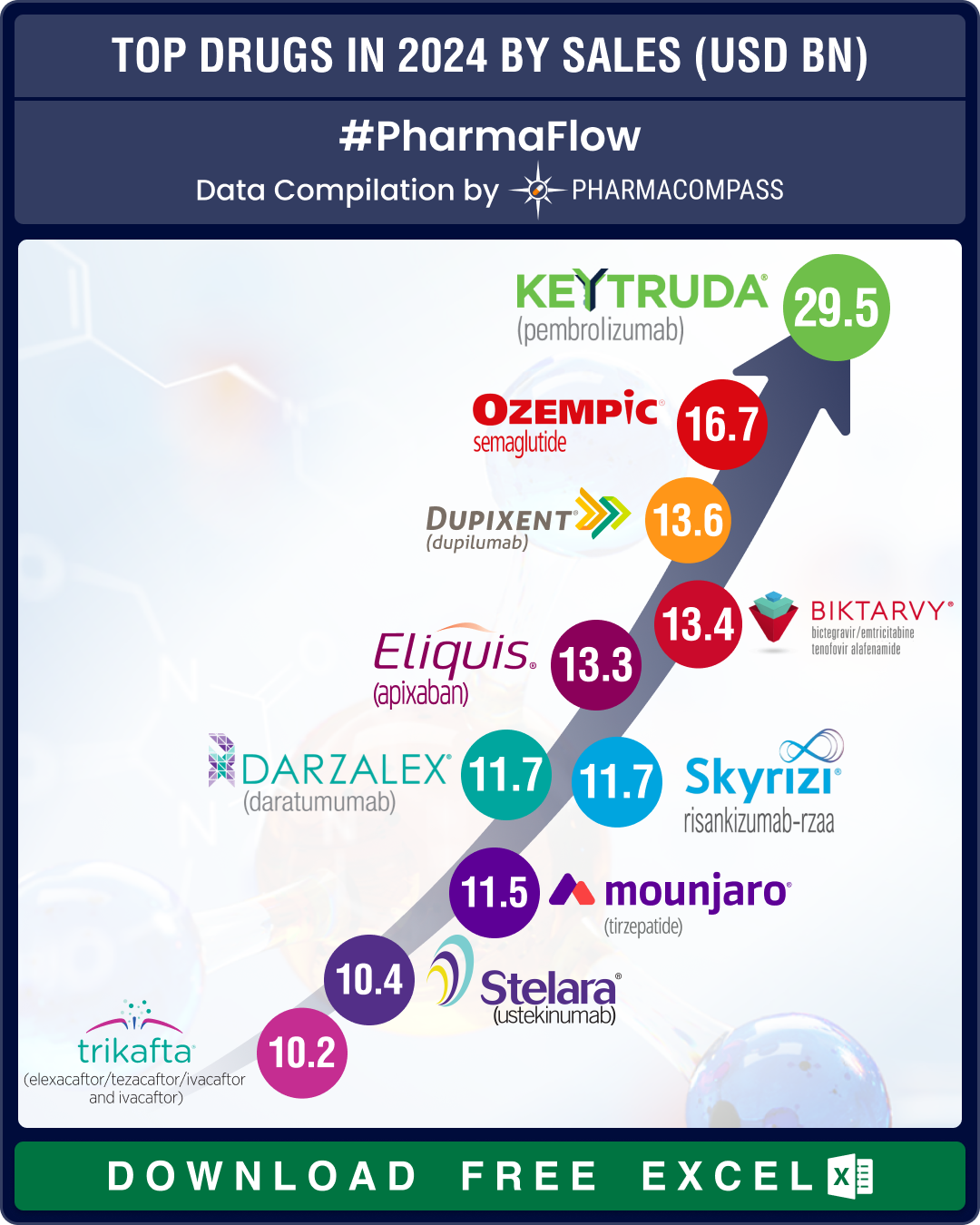
This week, Phispers brings you contrasting news on two immunotherapy drugs -- Bristol-Myers Squibb’s Opdivo and Merck’s Keytruda. In other news, Bangladesh begins exporting drugs to the US, while Myanmar struggles to curb a crystal meth boom. And Sanofi’s acquisition of Boehringer Ingelheim’s consumer health business gets a conditional approval from the European Commission.
Bristol-Myers Squibb reanalyzes cancer drug, as Merck races ahead with Keytruda
First approved in 2014, Merck’s Keytruda and Bristol-Myers Squibb’s Opdivo – also known as checkpoint inhibitors – have been forecast to be among the top 20 best-selling drugs in the world by 2020. They represent the hot new field of immunotherapy and are known to have given 90-year old Jimmy Carter (former President of the United States) hope in his fight against cancer.
However, the field of immunotherapy received a nasty surprise when Bristol-Myers Squibb said its treatment Opdivo had not slowed the progress of advanced lung cancer in a trial which compared it with conventional chemotherapy.
While Bristol-Myers’ stock price plunged, Merck announced that not only did Keytruda succeed in a clinical trial as an initial treatment for advanced non-small cell lung cancer, but patients actually lived longer. In addition, the FDA approved Keytruda for head-and-neck cancer.
Bristol-Myers Squibb is re-analyzing the (patient groups’) data in a trial called CHECKMATE-026 to see whether it can salvage the study.
China’s FDA proposes new drug registration rules
China Food and Drug Administration (CFDA) has issued new proposals to revamp China's Drug Registration Rules (DRR). The proposals offer the prospect of eliminating a backlog of drug reviews, updating China's drug classification system and reforming clinical trial rules to allow parallel drug development in and outside of China.
The modified rules would also eliminate statutory timelines for CFDA to review applications and prohibit sponsors from marketing APIs without an approved drug product marketing application.
Analysts say the new regulations could weaken intellectual property protection in China and effectively force API manufacturers to seek marketing approval of drugs. In the long term, the new regulations may even reduce the number of API manufacturers in the country.
Indian drug regulator eases norms for clinical trials
The Drugs Controller General of India (DCGI), in a recent notification, eased norms related to pharmaceutical research in India, paving the way for an increase in the number of clinical trials being run in the country.
Under the new ruling, an investigator or researcher can now undertake as many trials as approved by the ethics committee, as opposed to the present cap of three trials. The regulator has also relaxed norms for hospitals or clinical sites undertaking such trials. Through a separate notification, the DCGI has revised the rule that prohibited any hospital with less than 50 beds to take up a trial.
This announcement comes at a time when foreign drug regulators such as the US Food and Drug Administration (FDA) and EU's European Medicines Agency (EMA) have increased their inspections of Indian clinical research organizations (CROs). Incidentally, India’s share in global clinical trials today is only 1.46 per cent.
India’s pharma sector behind Myanmar’s crystal meth boom
Cold pills contain pseudoephedrine, the main ingredient of meth, which is a highly addictive drug whose ever-soaring popularity is rattling governments across Asia. Meth is sold in pill form, known as ‘ya ba’ (Thai for ‘crazy medicine’), or in a more potent, crystalized form, known as ‘crystal meth’, ‘ice’ or ‘shabu’.
Myanmar's current boom in meth production would not have been possible without a recent surge in smuggling of pseudoephedrine from across India's huge and ill-regulated pharmaceuticals sector.
In a raid held in Myanmar in mid-June
, the police intercepted a car carrying more than 60 kg (130 lbs) of Indian pseudoephedrine – enough to make more than a million ‘ya ba’ pills.
According to the US State Department 2015 report, global demand for methamphetamine has created “new precursor chemical entrepreneurs in India”.
Myanmar police say China is also a major supplier of pseudoephedrine. But with tighter controls there, and with greater demand for the chemical as meth use booms, drug producers have increasingly turned to India.
Bangladesh’s Beximco is the first company to export drugs to the US
The first pharmaceutical product made in Bangladesh has hit the American market, opening a new window for increasing the country’s export earnings. The company is Beximco Pharmaceuticals, and the product it will export is Carvedilol – a hypertensive drug.
The United States is the largest and most lucrative pharmaceutical market in the world. It is also one of the most regulated markets in the world. While congratulating Beximco, Bangladesh’s health minister Mohammed Nasim said “receiving the FDA nod is a rigorous process”.
European Commission clears Sanofi-Boehringer Ingelheim deal
The European Commission approved the (proposed) acquisition of the consumer health business of Boehringer Ingelheim by Sanofi, subject to conditions.
Under the approval, France’s Sanofi and Germany’s Boehringer Ingelheim have to divest a number of businesses in the Czech Republic, Estonia, France, Hungary, Greece, Ireland, Latvia, Poland and Slovakia.
The Commission had concerns that the transaction would have reduced competition in some pharmaceutical products in these markets where both the companies have very strong products, with a lack of alternatives. This, according to the Commission, could have led to higher prices and less choice for customers.
The commitments offered by Sanofi address these concerns. Sanofi offered to divest either its own or Boehringer Ingelheim's local businesses in the markets concerned, including the relevant marketing authorizations, customer information and brands, and personnel.
This news comes at the time when Mylan has wrapped up its US $ 7.2 billion acquisition of Meda, which will now operate as a controlled subsidiary of Mylan.
Six executives of Novartis’ Korea unit indicted in doctor bribery case
The Korean unit of Novartis has come under fire for bribing doctors for prescribing the company’s medicines. Six former and current Novartis executives at its Korean unit allegedly paid more than US $ 2 million to doctors in return for prescribing its medicines. Among those indicted was the former chief executive of Novartis’ Korea unit.
Moreover, six publishers of medical publications and 15 doctors who work at general hospitals were also indicted. Novartis funded academic events that were supposedly organized by these publications. According to Korea Herald, these publications distributed money to doctors, disguised as attendance fees and as fee for articles that the doctors contributed to the publications.
These activities occurred between 2011 and 2016. Six months ago, the Seoul Western District Prosecutors’ Office raided Novartis’ offices in search of evidence that the drug maker had paid bribes.
The PharmaCompass Newsletter – Sign Up, Stay Ahead
Feedback, help us to improve. Click here
Image Credit : Magic Pills by Jonathan Silverberg is licensed under CC BY 2.0
“ The article is based on the information available in public and which the author believes to be true. The author is not disseminating any information, which the author believes or knows, is confidential or in conflict with the privacy of any person. The views expressed or information supplied through this article is mere opinion and observation of the author. The author does not intend to defame, insult or, cause loss or damage to anyone, in any manner, through this article.”






